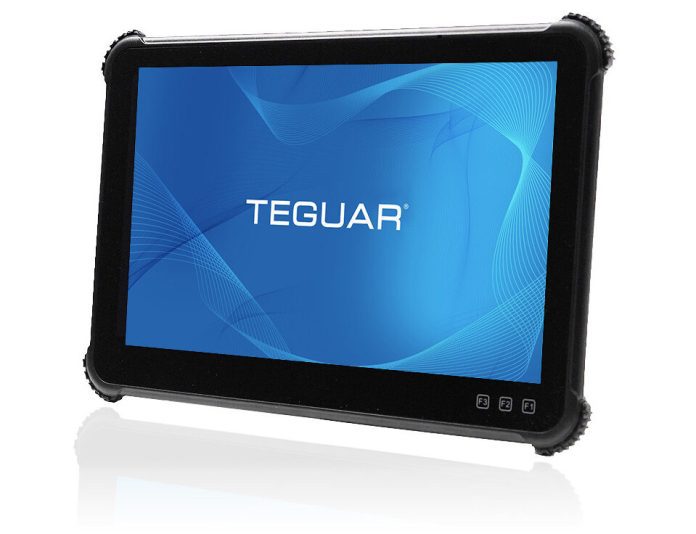As the world faces unprecedented environmental challenges, sustainability has emerged as a crucial imperative across industries. From reducing carbon footprints to implementing greener practices, companies and organizations worldwide are exploring innovative ways to contribute to a more sustainable future. Among the unsung heroes aiding in sustainability efforts are rugged tablets, ruggedized and durable mobile computing devices designed to withstand harsh environments. In this article, we will delve into how rugged tablets are playing a vital role in fostering sustainability across various sectors.
Streamlining Paperless Workflows
One of the most significant contributions of rugged tablets to sustainability lies in their ability to streamline paperless workflows. In industries like construction, manufacturing, and logistics, where massive amounts of paperwork have traditionally been required, rugged tablets enable the digital transformation of operations. By replacing paper-based processes with digital forms and documents, these tablets help reduce paper consumption, resulting in significant reductions in deforestation and waste generation.
Moreover, the transition to paperless workflows increases efficiency, reduces errors, and allows for real-time data sharing. This translates to resource conservation, lowered energy usage, and enhanced operational productivity – all contributing to overall sustainability efforts.
Enhancing Energy Efficiency
Rugged tablets are designed to be energy-efficient devices. Manufacturers optimize their hardware and software to extend battery life and minimize power consumption without compromising performance. This inherent energy efficiency translates to a reduced carbon footprint during the production, use, and disposal phases of these devices.
Additionally, by utilizing rugged tablets, industries can deploy energy-efficient solutions in various applications. For instance, logistics companies can optimize delivery routes using real-time data, resulting in reduced fuel consumption and greenhouse gas emissions.
Facilitating Remote Operations
In industries like agriculture, oil and gas, and renewable energy, rugged tablets are invaluable tools for remote operations. The ability to gather and analyze data in remote locations empowers businesses to make more informed decisions while minimizing the need for on-site personnel. This reduces the carbon footprint associated with travel, transportation, and accommodation of employees while still ensuring seamless operations.
Furthermore, by enabling remote monitoring and control of equipment, rugged tablets help identify and address issues promptly, reducing downtime and unnecessary resource consumption.
E-Waste Reduction Through Durability
Electronic waste (e-waste) is a significant environmental concern as discarded electronic devices continue to accumulate in landfills, releasing harmful toxins into the environment. Rugged tablets address this issue through their durability and extended lifecycle. Unlike conventional consumer-grade tablets, rugged tablets are built to withstand harsh conditions, such as extreme temperatures, shocks, and vibrations.
Their rugged design extends the average lifespan of these devices, reducing the frequency of replacements and, consequently, e-waste generation. Some manufacturers even offer trade-in programs or recycling initiatives for end-of-life rugged tablets, ensuring responsible disposal and recycling practices.
Eco-Friendly Materials and Manufacturing
A growing number of rugged tablet manufacturers are incorporating eco-friendly materials and sustainable manufacturing practices into their production processes. Recycled plastics, biodegradable components, and responsible sourcing of materials are becoming more common in the rugged tablet industry.
By choosing devices from environmentally conscious manufacturers, businesses actively support sustainability initiatives. Furthermore, these manufacturers’ commitment to greener practices can inspire other industries to adopt similar approaches, fostering a broader sustainability movement.
Supporting Green Supply Chain Management
Supporting Green Supply Chain Management
Rugged tablets are not just tools used within organizations; they also contribute to sustainability efforts throughout the supply chain. Green supply chain management focuses on minimizing environmental impacts at every stage of the product lifecycle, from raw material sourcing to manufacturing, transportation, and distribution.
By incorporating rugged tablets into supply chain operations, companies can optimize logistics, reduce transportation-related emissions, and improve overall efficiency. For example, transportation companies can use rugged tablets for real-time route optimization, leading to reduced fuel consumption and greenhouse gas emissions.
Furthermore, rugged tablets can enable supply chain transparency by providing real-time data on product movement, quality, and environmental conditions. This information empowers businesses to make more informed decisions about sourcing, production, and distribution, allowing them to select suppliers and partners committed to sustainable practices.
At The End
Rugged tablets may not be as flashy or well-known as other sustainability technologies, but their impact is substantial and far-reaching. From streamlining paperless workflows to enhancing energy efficiency, facilitating remote operations, reducing e-waste, and embracing eco-friendly materials, these rugged devices play an integral role in sustainability efforts across various sectors.
As businesses and organizations increasingly recognize the importance of sustainability, embracing rugged tablets in their operations can lead to tangible environmental benefits. The continuous innovation and integration of greener practices by rugged tablet manufacturers further strengthen their contribution to building a more sustainable future for generations to come.
